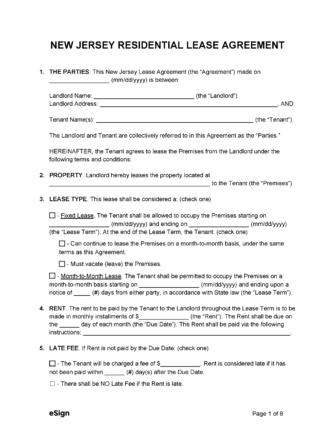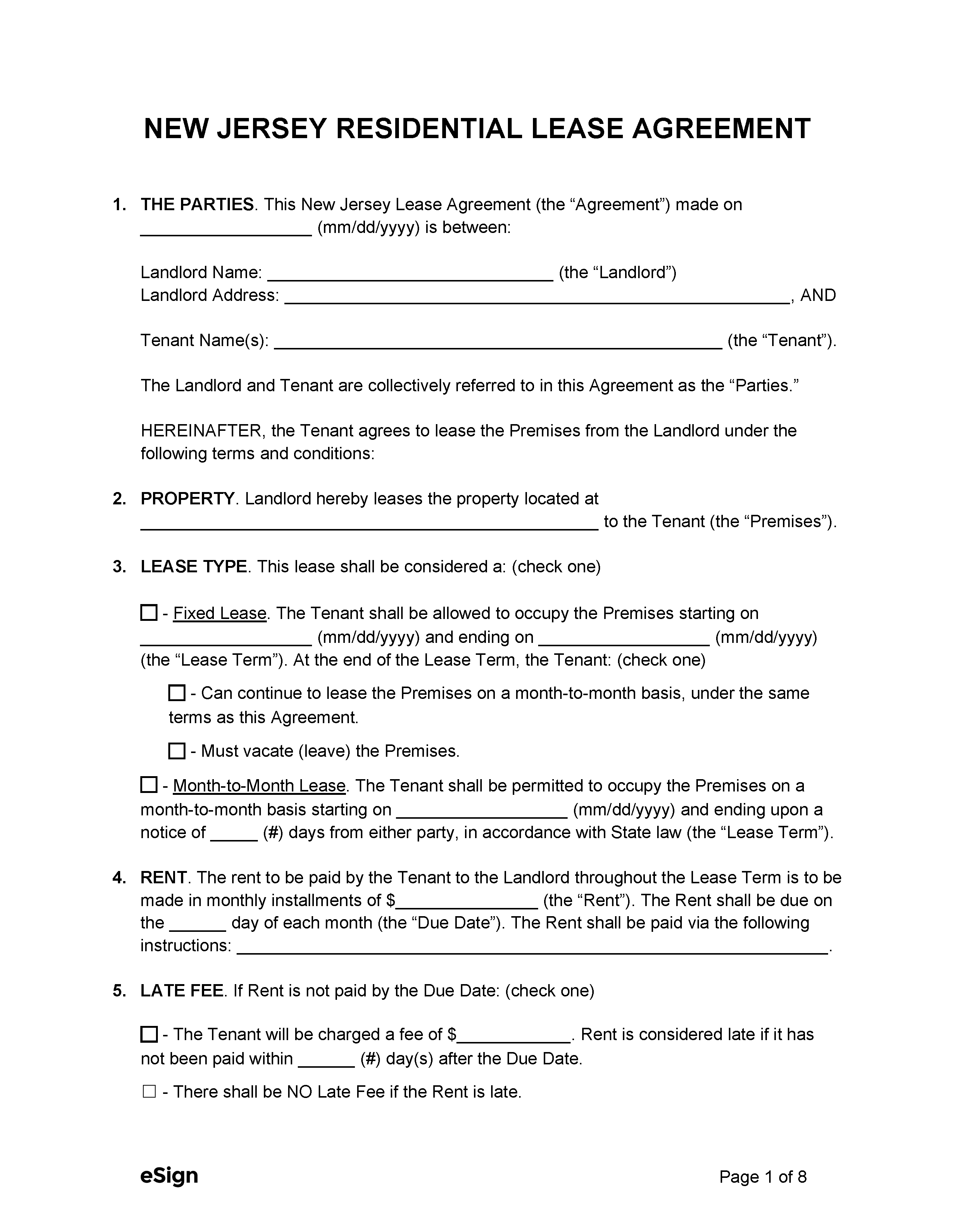Lease Agreements: By Type (6)
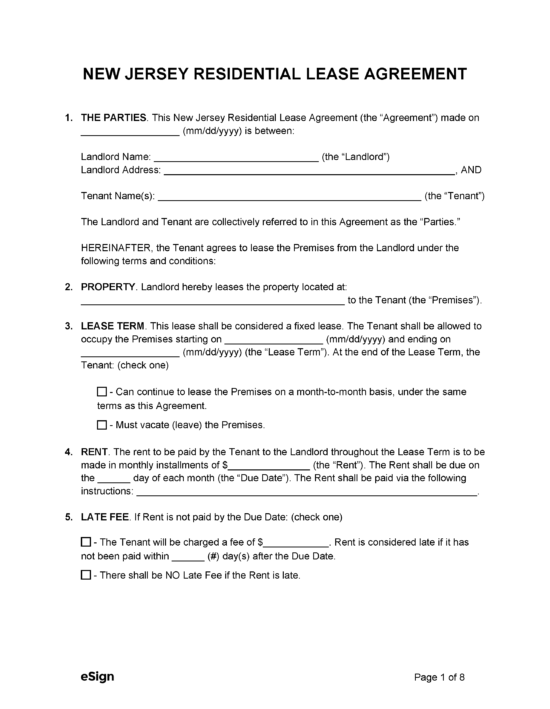 Standard (1-Year) Residential Lease – An annual lease that is paid monthly, usually with the option to renew the lease at the end of its term. Standard (1-Year) Residential Lease – An annual lease that is paid monthly, usually with the option to renew the lease at the end of its term.
Download: PDF, Word (.docx), OpenDocument |
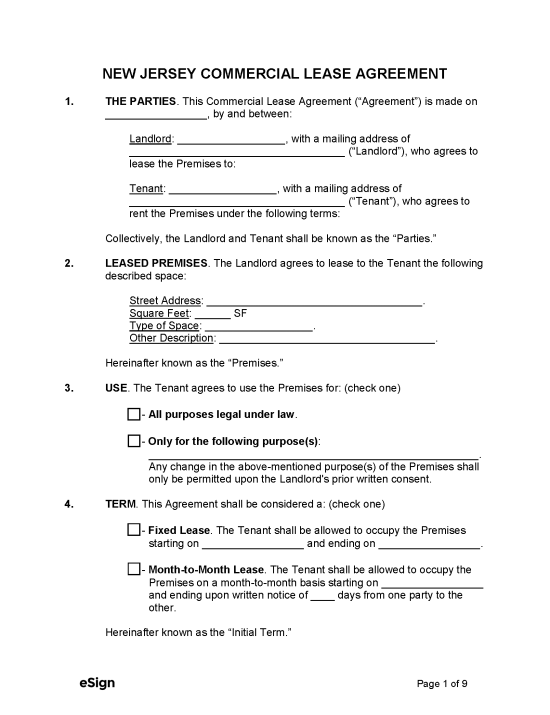 Commercial Lease Agreement – A rental contract used to lease property for business use. Commercial Lease Agreement – A rental contract used to lease property for business use.
Download: PDF, Word (.docx), OpenDocument |
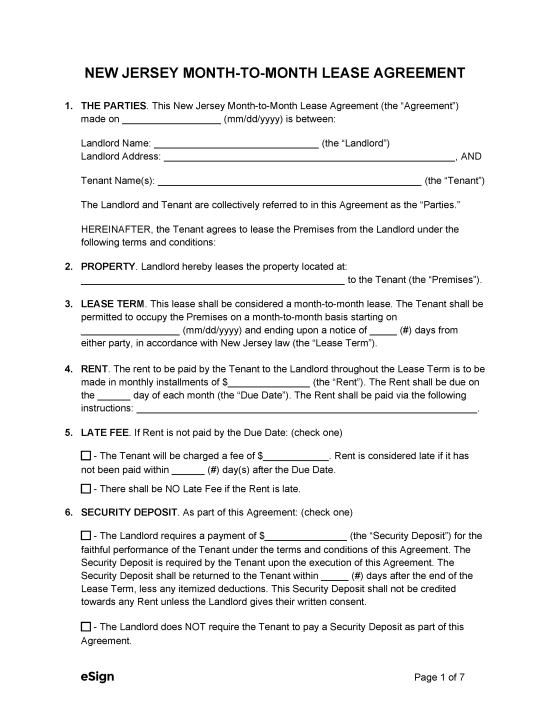 Month-to-Month Lease Agreement – A rental contract that renews and is paid on a monthly basis. Although more flexible, it offers less security than a standard lease. Month-to-Month Lease Agreement – A rental contract that renews and is paid on a monthly basis. Although more flexible, it offers less security than a standard lease.
Download: PDF, Word (.docx), OpenDocument |
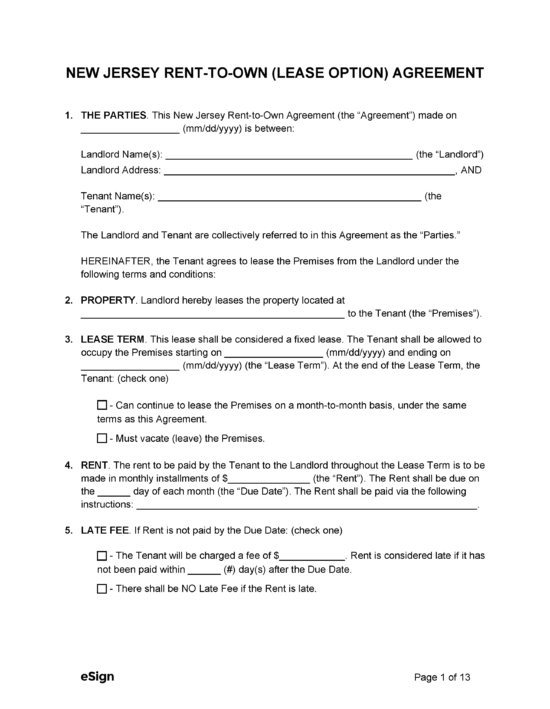 Rent-to-Own Agreement (Lease Option) – Allows the tenant to purchase the property after a specified period of time. Rent-to-Own Agreement (Lease Option) – Allows the tenant to purchase the property after a specified period of time.
Download: PDF, Word (.docx), OpenDocument |
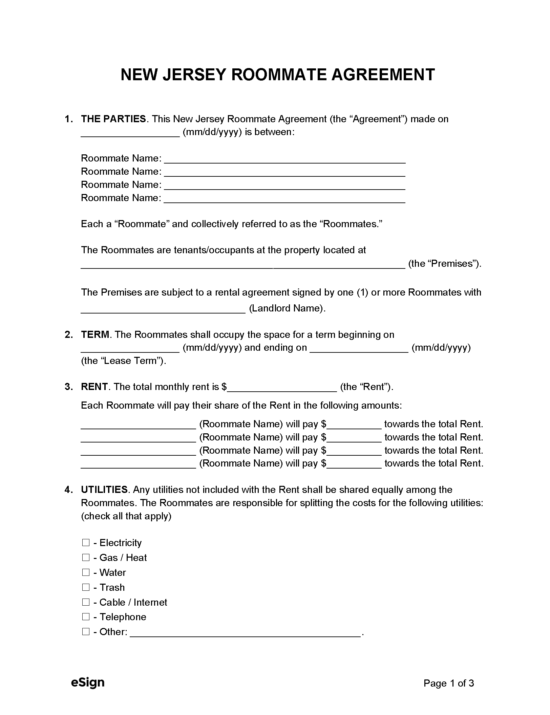 Roommate Agreement – Enables a group of roommates to establish the dwelling’s rules and duties. Roommate Agreement – Enables a group of roommates to establish the dwelling’s rules and duties.
Download: PDF, Word (.docx), OpenDocument |
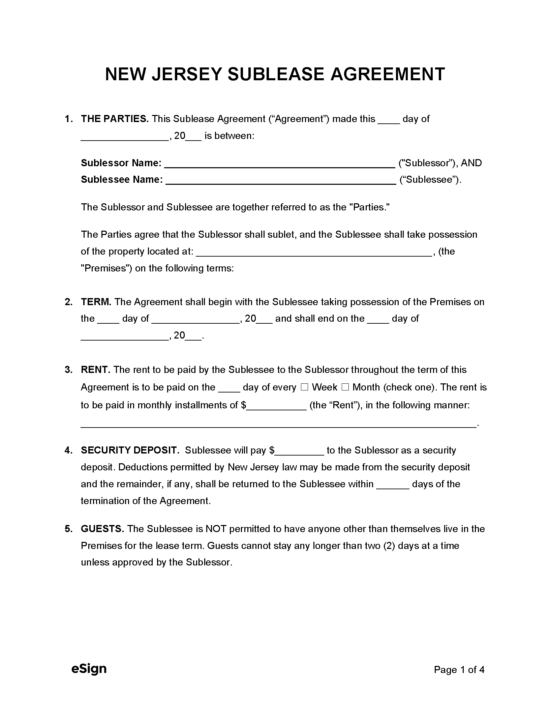 Sublease Agreement – Used by tenants who wish to sublease their rental space to another individual. Sublease Agreement – Used by tenants who wish to sublease their rental space to another individual.
Download: PDF, Word (.docx), OpenDocument |
Required Disclosures (4)
- Flood Zone – If the property is in a flood zone, landlords must inform their tenants in writing.[1] A Flood Zone Lookup Tool is provided by FEMA for determining whether a property is affected.
- Lead-Based Paint Disclosure (PDF) – Landlords are required by federal law to disclose the possibility of exposure to lead-based paint in dwellings built prior to 1978.[2]
- Truth in Renting Act (PDF) – This guide explaining tenant-landlord rights and responsibilities must be provided to all tenants with terms of at least one month residing in buildings that contain more than two dwelling units (three if the landlord occupies one).[3]
- Window Guards – Leases must detail the tenant’s right to demand window guards if they have children who are 10 years old or younger. This requirement is only applicable in buildings with three or more units.[4]
Security Deposits
Collecting Interest – Landlords are required to invest the security deposit in a money market fund or place it in an interest bearing account and collect interest on behalf of the tenant.[6]
Returning to Tenant – Security deposits must be returned to the tenant within 30 days of their lease’s termination.[7]
Itemized List Required? – Yes, an itemized list of deductions made must accompany the security deposit when returned.[8]
Separate Bank Account? – Yes, landlords must place the deposit in a separate account.[9]
Rent Payments
Grace Period – None, although senior citizens are granted a five-weekday grace period (excluding federal holidays).[12]
Maximum Late Fee ($) – There’s no max late fee in New Jersey.
Withholding Rent – If a landlord fails to maintain a dwelling in a suitable living condition, a tenant can repair any vital problems and deduct the amount from the rent.[13]
Rent Increase Notice – The landlord must give the tenant at least 30 days’ notice before increasing the rent.[14] This notice must be delivered along with a Notice to Quit at the end the lease term.
Breaking a Lease
Non-Payment of Rent – New Jersey landlords can file to evict a tenant without notice if they fail to pay rent.[15]
Non-Compliance – A 1-month notice to quit is used to evict tenants who violated their lease terms.[16]
Lockouts – It is illegal for landlords to change the unit’s locks without a court-issued warrant for possession.[17]
Leaving Before the End Date – Ending a lease early may require the tenant to pay the remaining months of rent if the landlord cannot re-rent the dwelling before the end date.[18] However, in the following cases, ending a lease early may be permitted without penalty:
- If the tenant or their spouse passes away.[19]
- If the tenant or their spouse has a disabling illness or accident causing a loss of income, or if the dwelling is not handicapped accessible.[20]
- If the tenant or their spouse is accepted into an assisted living facility or low-income housing.[21]
- If the tenant or their child faces the threat of serious physical violence.[22]
Lease Termination
Month-to-Month Tenancy – A month-to-month tenancy can be terminated by providing the other party a 1-month notice to quit.[23]
Unclaimed Property – Landlords may dispose of a tenant’s personal belongings provided all the following applies:
- The landlord reasonably believes that the tenant has abandoned the premises and their belongings.[24]
- The landlord has obtained a warrant for removal and re-obtained possession of the premises, or the tenant has voluntarily relinquished possession.[25]
- The landlord has provided a written notice that they intend to dispose of the belongings if they are not recovered in the specified timeframe.[26]
Sources
- § 46:8-50(a)
- EPA/HUD Fact Sheet
- § 46:8-46
- § 5:10-27.1(c)
- § 46:8-21.2
- § 46:8-19
- § 46:8-21.1
- § 46:8-21.1
- § 46:8-19(a)(2)
- § 5:10-5.1(c)
- § 5:10-5.1(c)
- §§ 2A:42-6.1, 2A:42-6.3
- New Jersey – Habitability Bulletin (Page 2)
- New Jersey – Rent Increase Bulletin (Page 1)
- § 2A:18-61.2
- §§ 2A:18-61.2(b), 2A:18-61.1(d)
- § 2C:33-11.1(a)
- NJ DCA Division of Codes and Standards
- § 46:8-9.1
- §§ 46:8-9.2(a), 46:8-9.2(d)
- §§ 46:8-9.2(b), 46:8-9.2(c)
- § 46:8-9.6(a)
- § 2A:18-56(b)
- § 2A:18-72
- § 2A:18-72(a-b)
- § 2A:18-74
